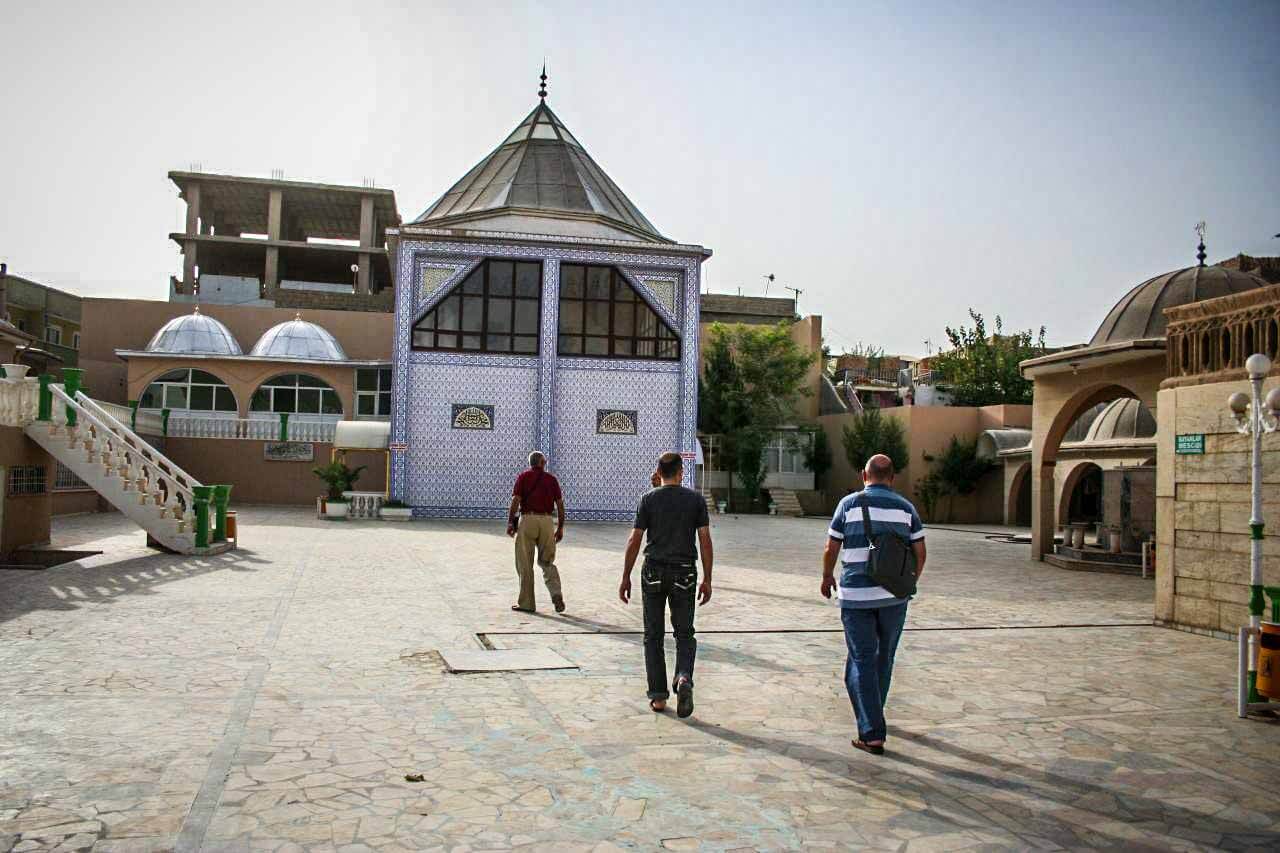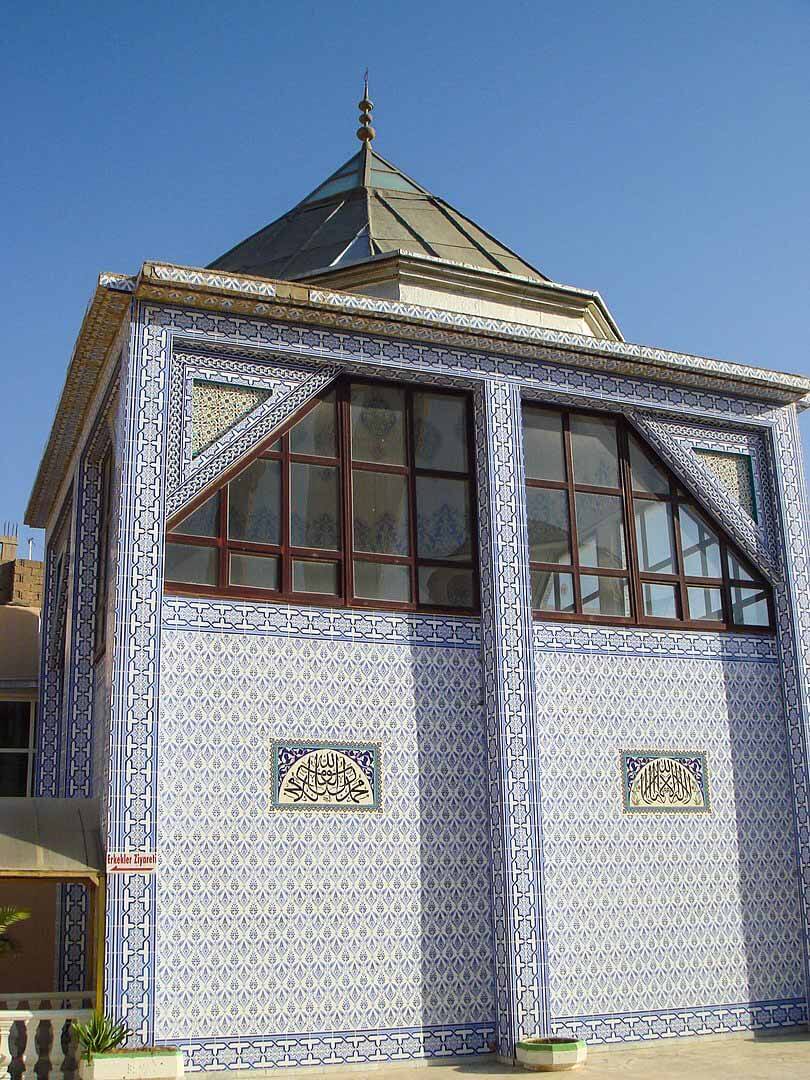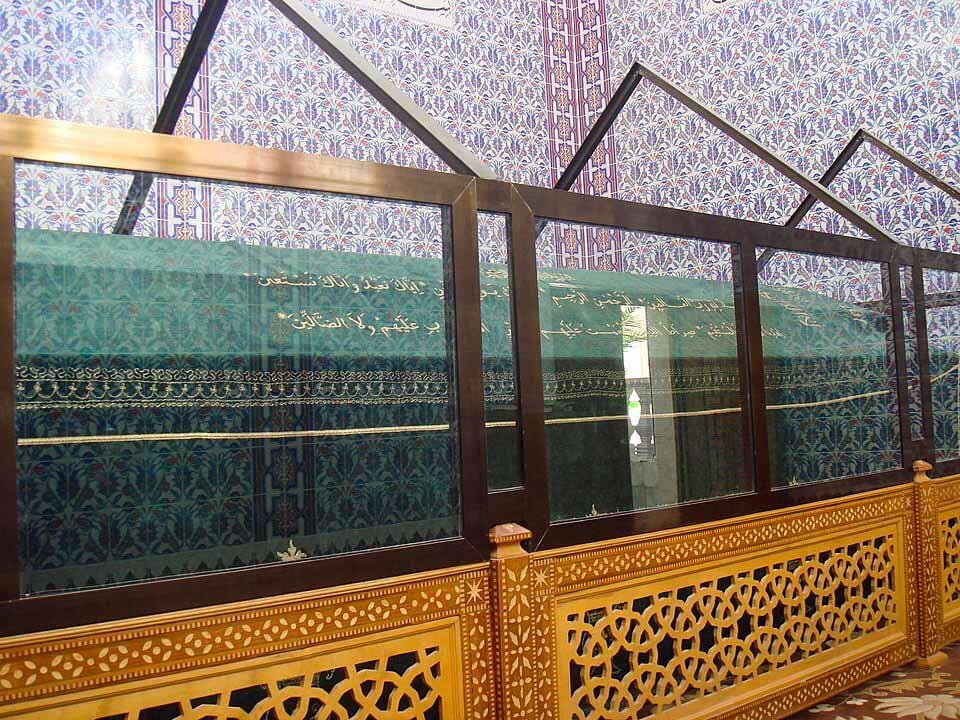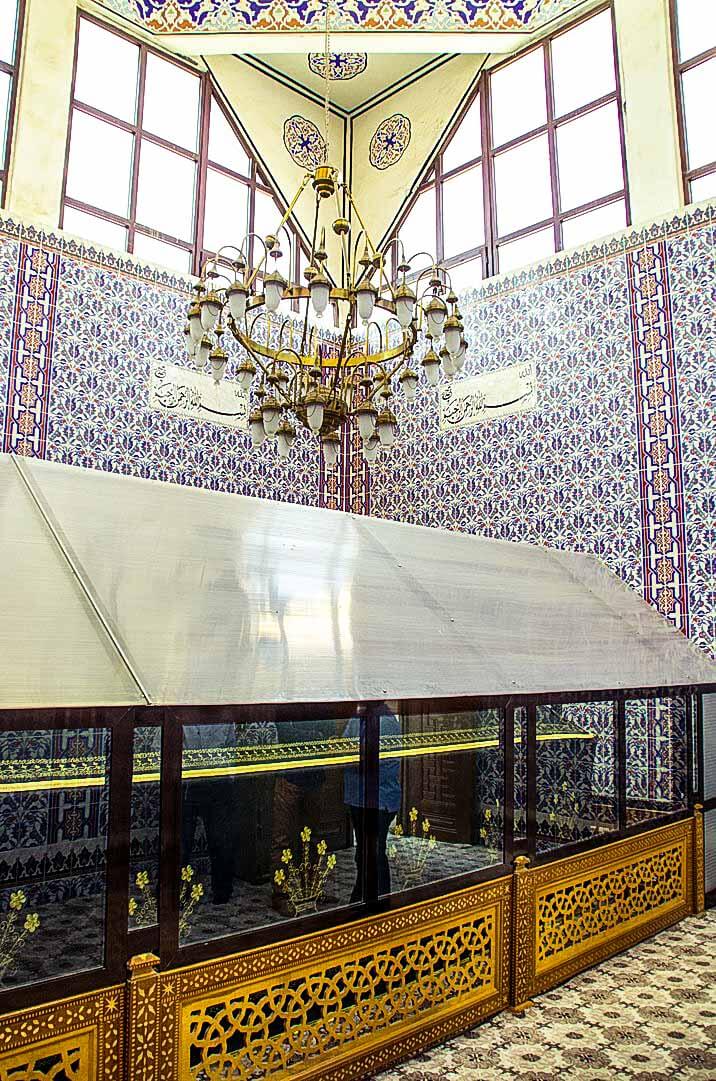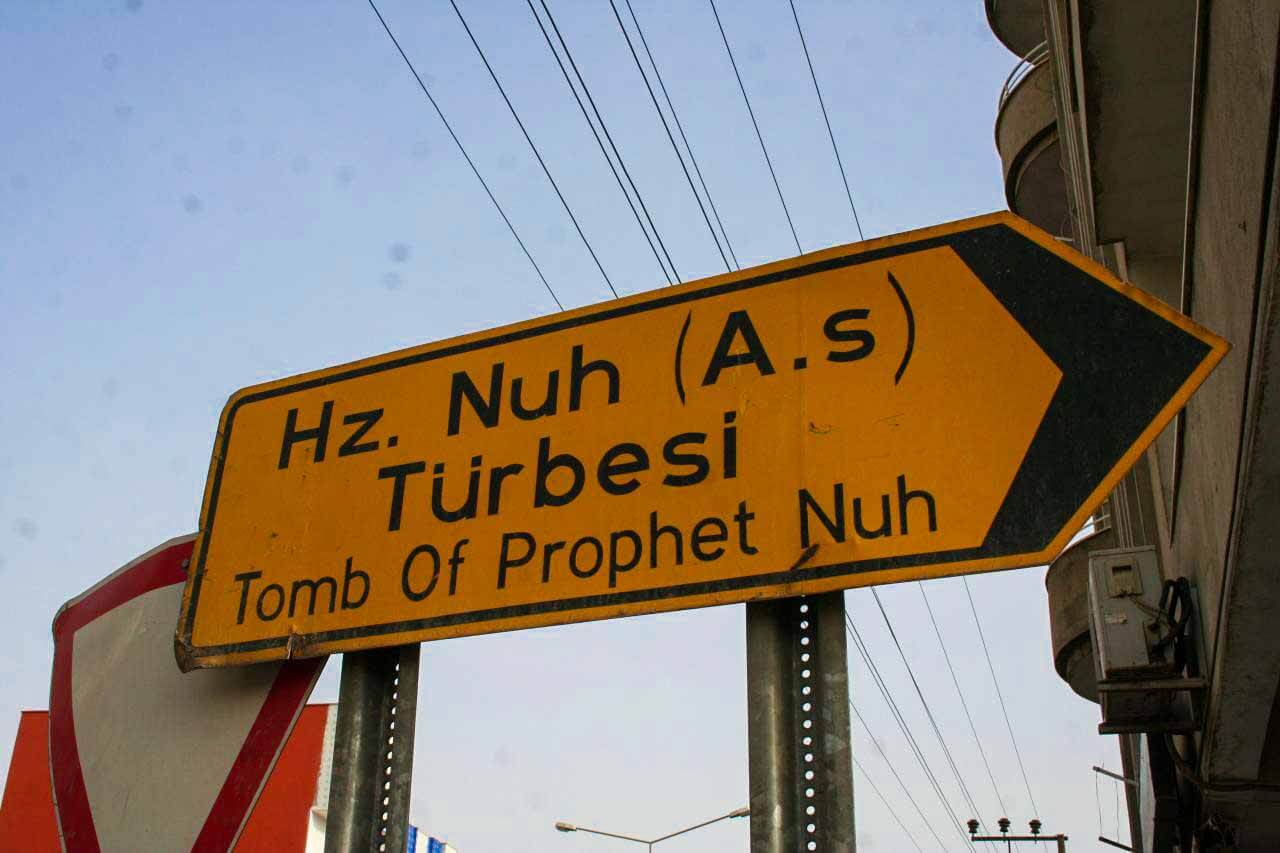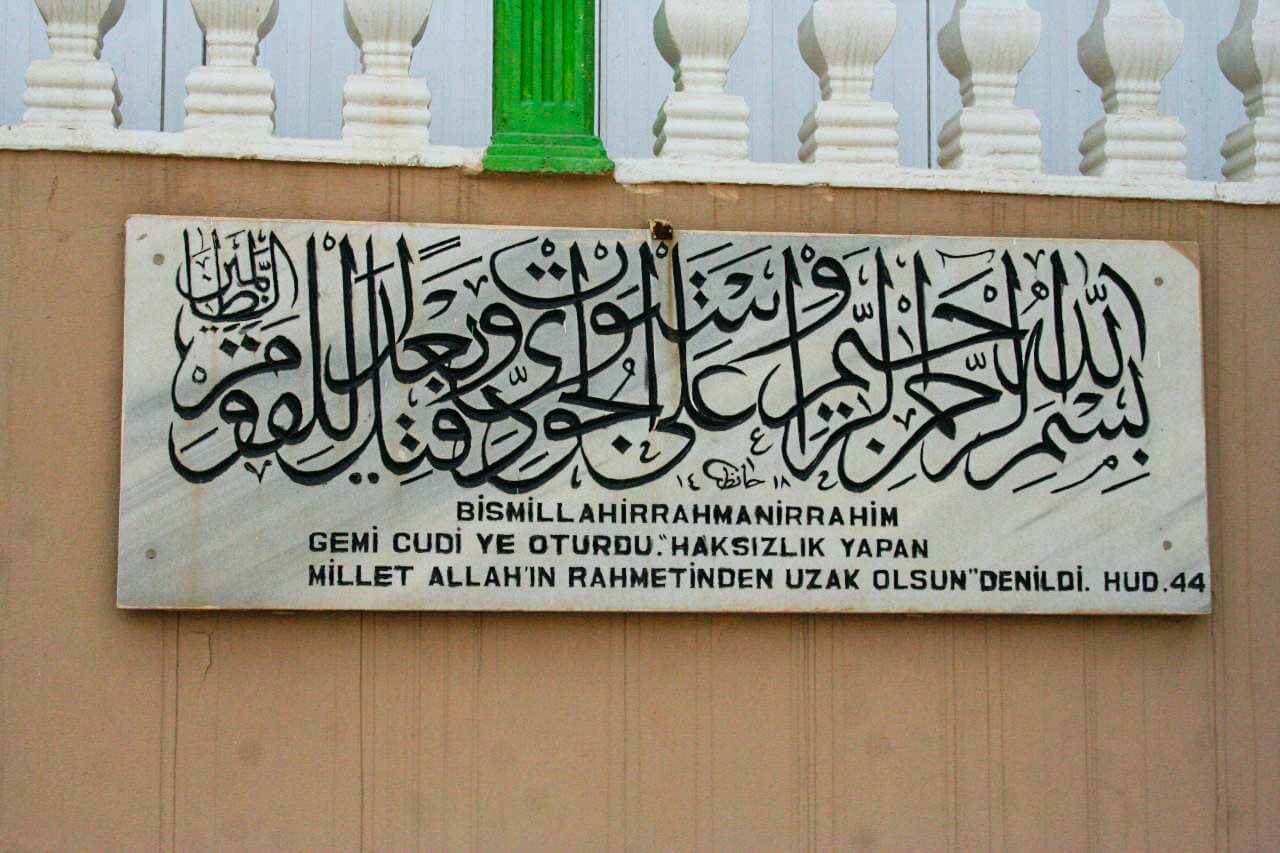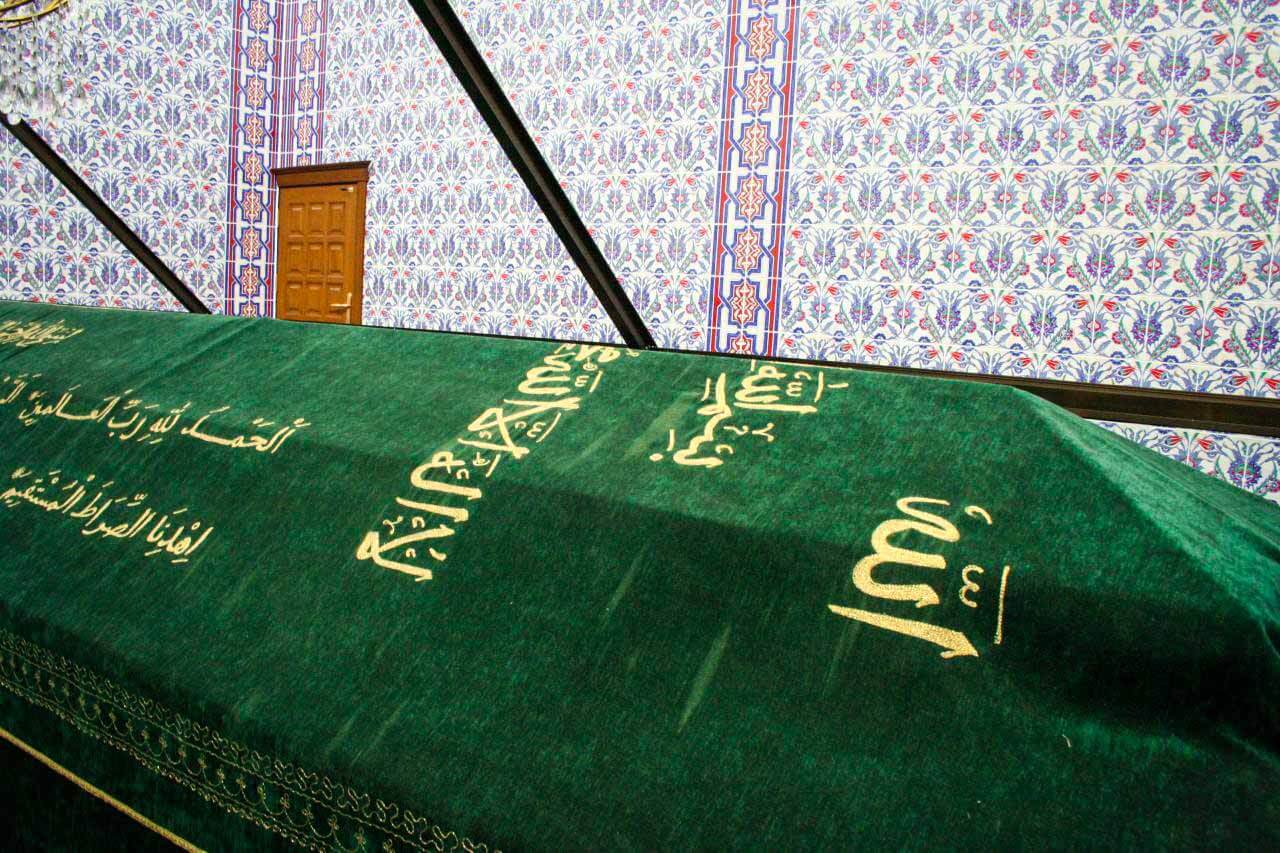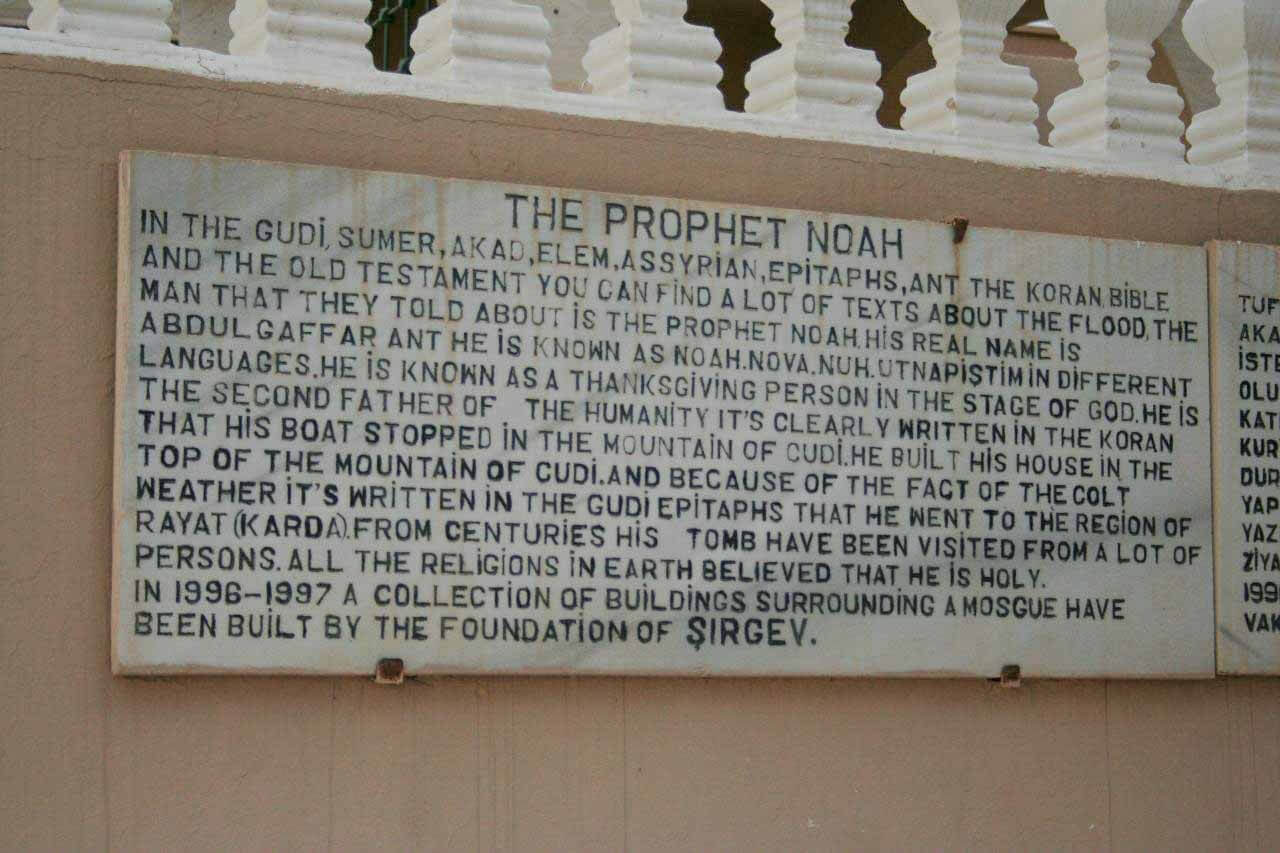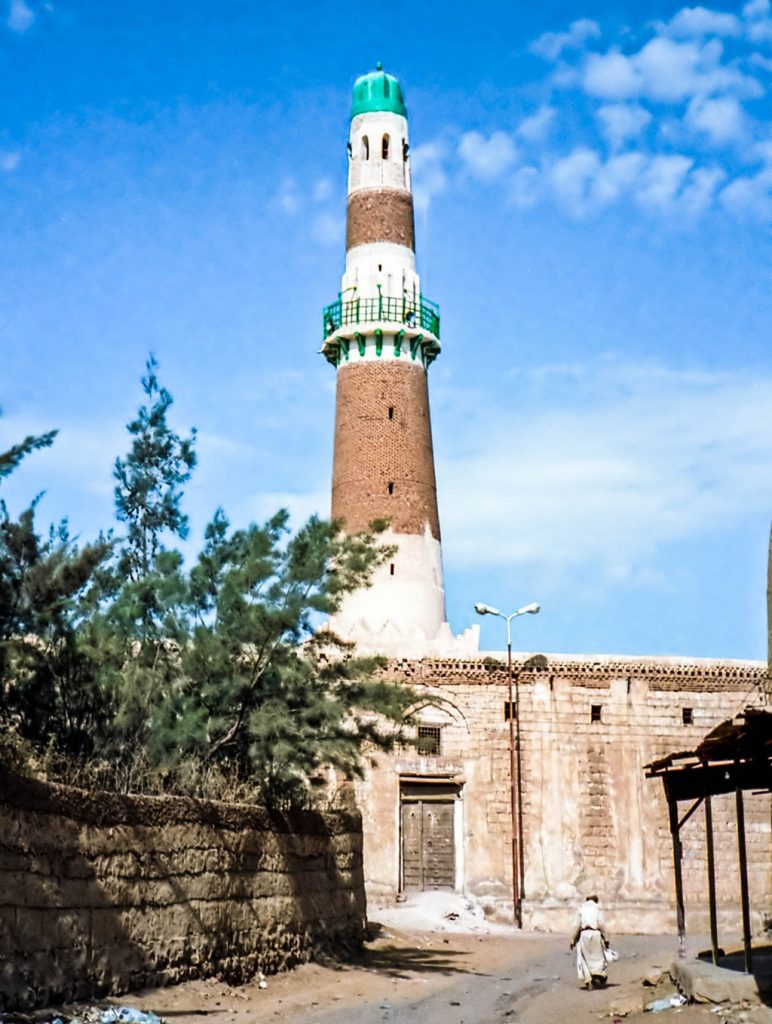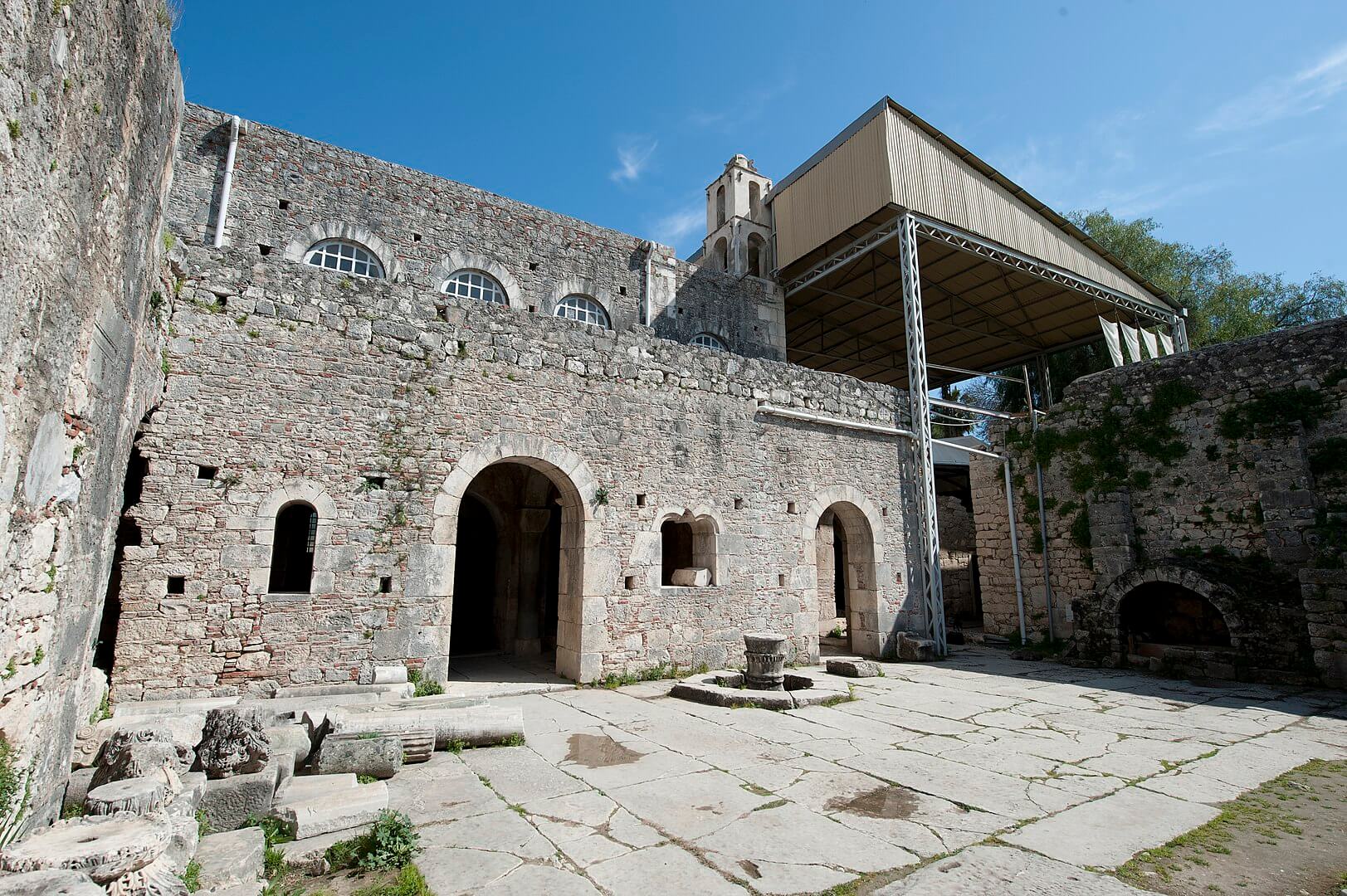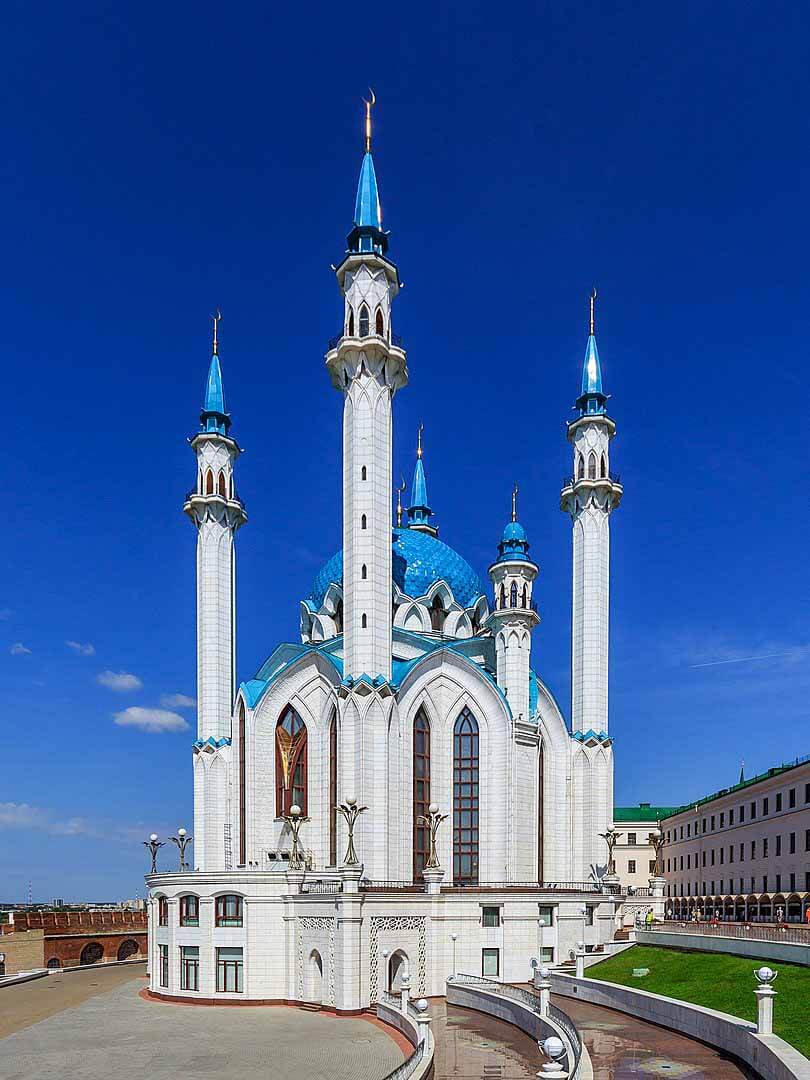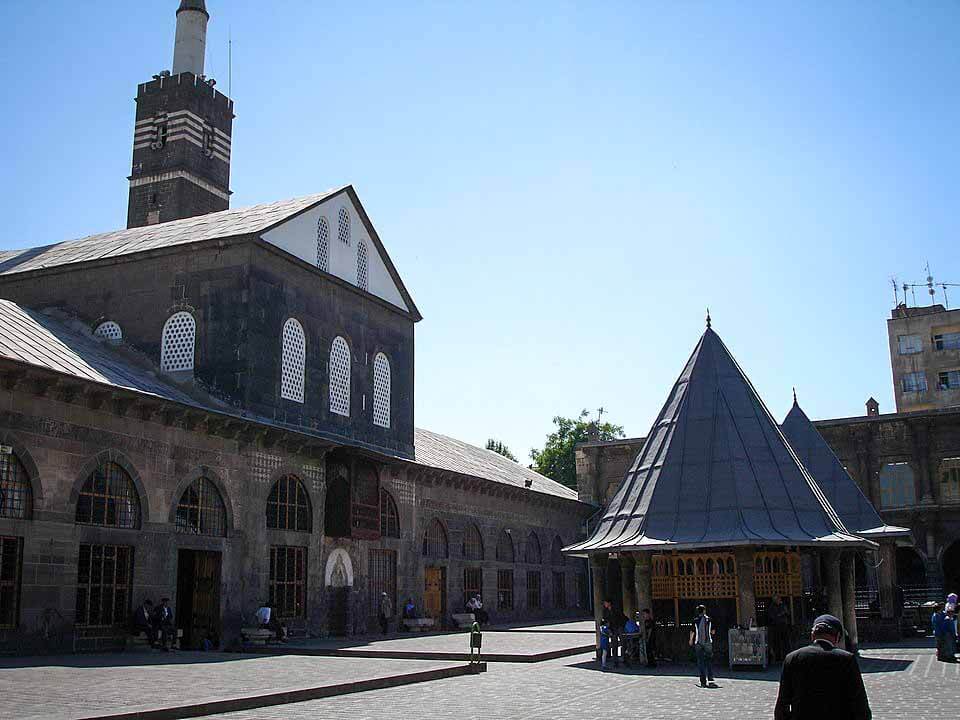Cizre, Turkey
Coordinates: 37.325387, 42.188171
The Tomb of Hz. Nuh عليه اسلام in located in Cizre, Turkey. It is situated in the courtyard of Nebi Nuh Mosque.
Mosque in the southern part of the basement stairs in a part after a long and narrow pass leads to the tomb.
To the east is Mount Judi which is the mountain that is mentioned in the Quran on which ark of Hz. Nuh عليه اسلام came at rest.
The tradition from Cizre claims that it was the original burial place of Hz. Nuh عليه اسلام and his family. However, the tradition can not be confirmed.
Distance from two mountains
There are mainly two mountains that are considered on which Ark of Hz. Nuh عليه اسلام rested after the deluge.
Distance between Mount Judi and the possible sites of tomb of Hz. Nuh عليه اسلام
Distance b/w Mount Judi and Tomb in Turkey
17.69 kilometers SW (230°)
Distance b/w Mount Judi and Tomb in Azerbaijan
332.62 kilometers NE (52°)
Distance b/w Mount Judi and Tomb in Jordan
922.78 kilometers SW (223°)
Distance b/w Mount Judi and Tomb in Lebanon
703.67 kilometers SW (237°)
Distance between Mount Ararat and the possible sites of tomb of Hz. Nuh عليه اسلام
Distance b/w Mount Ararat and Tomb in Turkey
322.15 kilometers SW (215°)
Distance b/w Mount Ararat and Tomb in Azerbaijan
110.84 kilometers SE (120°)
Distance b/w Mount Ararat and Tomb in Jordan
1224.55 kilometers SW (222°)
Distance b/w Mount Ararat and Tomb in Lebanon
990.07 kilometers SW (231°)
Burial place narrated by Ibn Kathir
Death of Hz. Nuh عليه اسلام
After coming down from the mountain, the Quran draws the curtain on Hz. Nuh’s عليه اسلام story.
We do not know how his affairs with his people continued. All we know or can ascertain is that on his deathbed he requested his son to worship Allah alone, Hz. Nuh عليه اسلام then passed away.
Hz. Abdullah Ibn Amr Ibn Al as رضي الله عنه narrated that the Prophet Muhammad ﷺ said: “When the death of the Messenger of Allah Nuh approached, he admonished his sons: ‘Indeed I would give you far reaching advice, commanding you to do two things, and warning you against doing two things as well. I charge you to believe that there is no god but Allah and that if the seven heavens and the seven earths were put on one side of a scale and the words “there is no god but Allah” were put on the other, the latter would outweigh the former. I warn you against associating partners with Allah and against pride.”
(Sahih al Bukhari)
Hz. Hz. Nuh عليه اسلام in Islam
Hz. Nuh ibn Lumik ibn Mutushalkh , also known as Noah, is recognized in Islam as a prophet and messenger of God.
Hz. Nuh’s عليه اسلام mission was to warn his people, who were plunged in depravity and sin. Allah charged Hz. Nuh عليه اسلام with the duty of preaching to his people, advising them to abandon idolatry and to worship only Allah and to live good and pure lives.
Although he preached the Message of Allah with zeal, his people refused to mend their ways, leading to building the Ark and the Deluge, the Great Flood.
Hz. Nuh’s عليه اسلام preaching and prophet-hood spanned 950 years according to the Quran.
Hz. Nuh’s عليه اسلام mission had a double character: he had to warn his people, asking them to call for repentance and, at the same time, he had to preach about Allah’s mercy and forgiveness, promising them the glad tidings God would provide if they led righteous lives. References to Noah are scattered throughout the Qur’an, and there is even an entire sura carrying his name, Nuh.
Family of Hz. Nuh عليه اسلام
Little is known of Hz. Nuh’s عليه اسلام personal history before his call to prophecy. However, Ibn Kathir records him to have been the son of Lamech and grandson of Methuselah, one of the patriarchs from the Generations of Hz. Adam عليه اسلام.
Hz. Nuh عليه اسلام was neither the leader of the tribe nor a very rich man but, even before being called to prophecy, he worshiped Allah faithfully and was, in the words of the Qur’an, “a devotee most grateful”.
Hz. Nuh عليه اسلام was married to a woman whose name is not mentioned in the Quran. Some Islamic historians such as Al-Tabari have suggested that the name of Hz. Nuh’s عليه اسلام wife was Umzarah bint Barakil but this cannot be confirmed.
Most Muslims simply call her by her midrashic name Naamah.
Islamic scholars agree that Hz. Nuh عليه اسلام had four sons whose names were Ham, Shem, Yam and Japheth.
According to the Quran, one of Hz. Nuh’s عليه اسلام sons was a disbeliever who refused to come aboard the Ark, instead preferring to climb a mountain, where he drowned. It is agreed among most Islamic scholars that Yam was the one who drowned; the other three remained believers.
The Quran states that Hz. Nuh’s عليه اسلام wife was not a believer with him so she did not join him; neither did one of Hz. Nuh’s عليه اسلام sons (Yam), who was secretly a disbeliever but had pretended faith in front of Hz. Nuh عليه اسلام.
The sons of Hz. Nuh عليه اسلام are not expressly mentioned in the Qur’an, except for the fact that one of the sons was among the people who did not follow his own father, not among the believers and thus was washed away in the flood.
Also the Qur’an indicates a great calamity, enough to have destroyed Hz. Nuh’s عليه اسلام people, but to have saved him and his generations to come.
Hz. Nuh’s عليه اسلام wife (Naamah) is referred to in the Qur’an as an evil woman. When Allah emphasizes upon the notion that everyone is for themselves on the Day of Judgement and that marital relations will not be to your aid when the judgement takes place, the Qur’an says:
Allah sets forth, for an example to the Unbelievers, the wife of Noah (عليه اسلام) and the wife of Lut (عليه اسلام): they were (respectively) under two of our righteous servants, but they were false to their (husbands), and they profited nothing before Allah on their account, but were told: “Enter ye the Fire along with (others) that enter!
Quran 66:10
Know This
In some cases there are multiple tombs of one prophet throughout the world. Only one site is the real one and the rest of the other are purported there for spiritual reason.
This website, according to the best of the sources availabe online, lists all the tombs placing the prominent one at first.
There is still no way to determine whether the prominent one is the real site and not the others as in most of the cases, the evidence found in others are really compelling.
Only Allah knows best which tomb is the real and which one is purported spiritual one.


